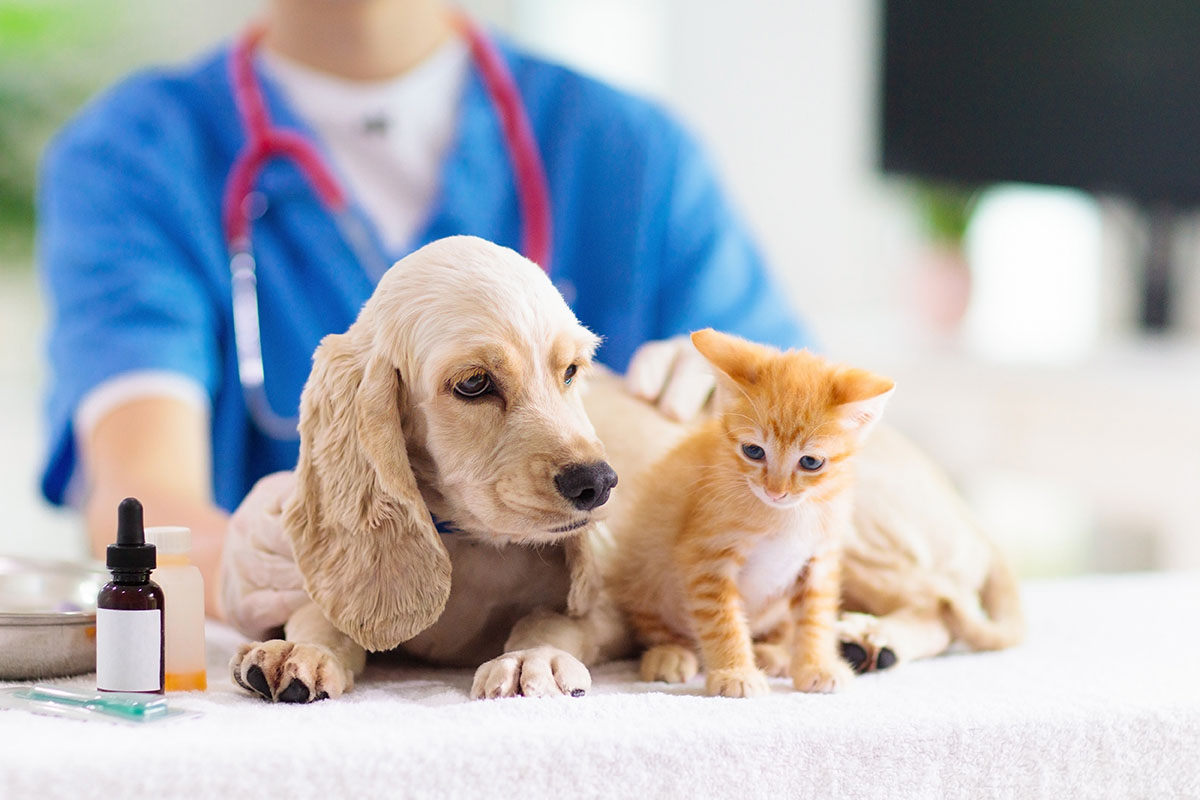

Veterinary is a branch of medicine that deals with the health of animals. Veterinarians diagnose and treat diseases and injuries in animals, and they also provide preventive care such as vaccinations.
Veterinarians can work in a variety of settings, including private practices, animal hospitals, zoos, and research laboratories. They can also work for the government or for animal welfare organisations.
To become a veterinarian, you need to complete a four-year Doctor of Veterinary Medicine (DVM) degree. After you graduate, you will need to pass a licensing exam in order to practice veterinary medicine.
Veterinarians play an important role in ensuring the health and well-being of animals. They also play a role in public health by preventing the spread of diseases from animals to people.
The veterinary clinic is open from 9am to 5pm.

Noun: a doctor who treats animals.
Adjective: of or relating to the treatment of animals.
The word "veterinary" comes from the Latin word "veterinus", which means "of or relating to beasts of burden".
The first recorded use of the word "veterinary" in English was in the 16th century.
What do veterinarians do?
Question:
Explain the role of a veterinary professional in animal health and welfare. Provide an example of a situation where a veterinarian's expertise is crucial for both the well-being of animals and public health.
Answer:
A veterinary professional plays a vital role in ensuring the health and welfare of animals. Veterinarians are trained medical experts who diagnose, treat, and prevent illnesses, injuries, and diseases in a wide range of animal species. Their responsibilities encompass companion animals, livestock, wildlife, and even exotic species.
For instance, consider a situation involving an outbreak of a zoonotic disease like rabies. A veterinarian's expertise becomes crucial not only for the well-being of animals but also for public health. In such cases, the veterinarian identifies and manages infected animals, implements vaccination programs, and provides guidance on control measures. By containing the spread of the disease within animal populations, veterinarians play a critical role in preventing its transmission to humans.
Furthermore, veterinarians contribute to food safety by inspecting and monitoring livestock, ensuring that animal products entering the food chain are free from diseases that could potentially impact human health. Their role extends to preventive care, such as vaccination, parasite control, and promoting responsible pet ownership, contributing to the overall well-being of animals and society.
Address
Developing Experts Limited
Exchange Street Buildings
35-37 Exchange Street
Norwich
NR2 1DP
UK
Phone
01603 273515
Email
hello@developingexperts.com
Copyright 2025 Developing Experts, All rights reserved.